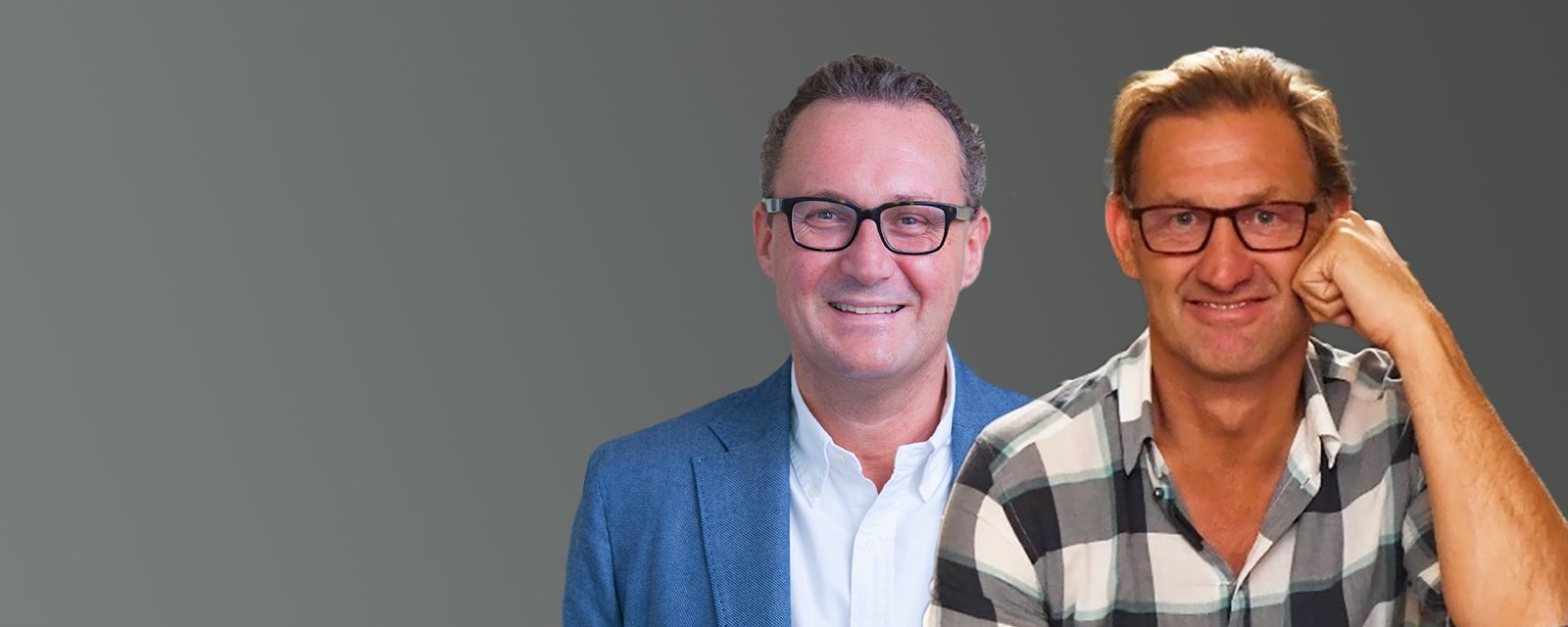
Visionary conversations at the RSM
Two conversations, two significant contributions to health and wellbeing. Mark Britnell and Tony Adams share their life experiences with RSM members.
Will he, won’t he? Is Mark Britnell heading for the NHS England top job?
The thirty-year career of Mark Britnell, a front-runner to take over from Sir Simon Stevens when he steps down as NHS England Chief Executive in July, was under the microscope recently during a virtual visit to the RSM.
Kicking off an hour-long conversation with Mr Britnell, a global authority on health system management, RSM President Professor Roger Kirby jumped straight to the question that everyone was talking about. Will Mr Britnell be applying for the soon to be vacant post of Chief Executive of NHS England? Unsurprisingly a definitive answer wasn’t forthcoming, but it certainly wasn’t a categorical ‘no’ from Mr Britnell. Clearly, taking on the mantle of managing a system representing the fifth largest employer in the world certainly had its appeal. Describing it as one of the best jobs in the world, but one of the most challenging too, Mr Britnell said he was thinking very seriously about the prospect but hadn’t yet made up his mind.
Having cleared the air about this pressing issue, Mr Britnell, led by Prof Kirby, went on to talk about his life and career, from working-class roots in Chester and the schoolteacher who convinced him to apply for university. To the student union at Warwick and his progression through the NHS, starting in 1989 when he joined the management trainee scheme. This ultimately led to roles including chief executive of University Hospitals in Birmingham, where he masterminded the largest new hospital build in the NHS, and a Director-General of the NHS Management Board.
Speaking of more personal matters, Mr Britnell talked of his prostate cancer diagnosis at age 42. In a frank exchange with Prof Kirby, an eminent former prostate surgeon who has also experienced prostate cancer himself. The two men swapped notes on the pain and trauma of dealing with post-surgery catheters at home and the importance of talking openly about diagnosis, treatment and the sometimes profound knock-on effects, including a period of depression in Mr Britnell’s case.
Now Chairman and Partner of the Global Health Practice at KPMG, and having spent several years travelling the world, working on operations, strategy and policy with governments, public and private sector organisations in 60 countries, Mr Britnell described a vision for the NHS where a more agile approach to workforce planning and education would allow clinicians to be at the forefront of management and supported to be the very best leaders. Healthcare and the life sciences must be part of the UK’s industrial strategy, and there must be greater reciprocity in developing training and education provision for clinicians internationally, according to Mr Britnell, if we are to care adequately for people in the UK and the rest of the world post-Covid.
Making an impact in mental health for elite sportspeople
Another visionary drawn to the RSM recently was football legend and mental health advocate Tony Adams. In conversation with Professor Henrietta Bowden-Jones, addiction psychiatrist and President of the RSM Psychiatry Section, Mr Adams gave a candid personal account of his battles to overcome depression and alcohol addiction in his early professional career.
These experiences, running parallel to captaining both Arsenal and England across a career spanning over 15 years, led Mr Adams to mastermind the launch in 2000 of the charity Sporting Chance, now a leading treatment and education provider for professional and former professional sportspeople.
From watching his dad play football on Hackney Marshes to being signed as a schoolboy for Arsenal; and from captaining England to talking mental health with Alex Ferguson, this was a fascinating personal story of a life that for 12 years was lived hard and fast, but which Mr Adams, with the help of talking therapies, managed to re-route into happier and more productive times.
Watch Mr Adams talk about the enormous contribution he has made to changing and saving lives by tackling the gambling, drugs, social media and other pressures faced by young sportspeople today.
Listen to all previous episodes of In Conversation Live at the RSM.
